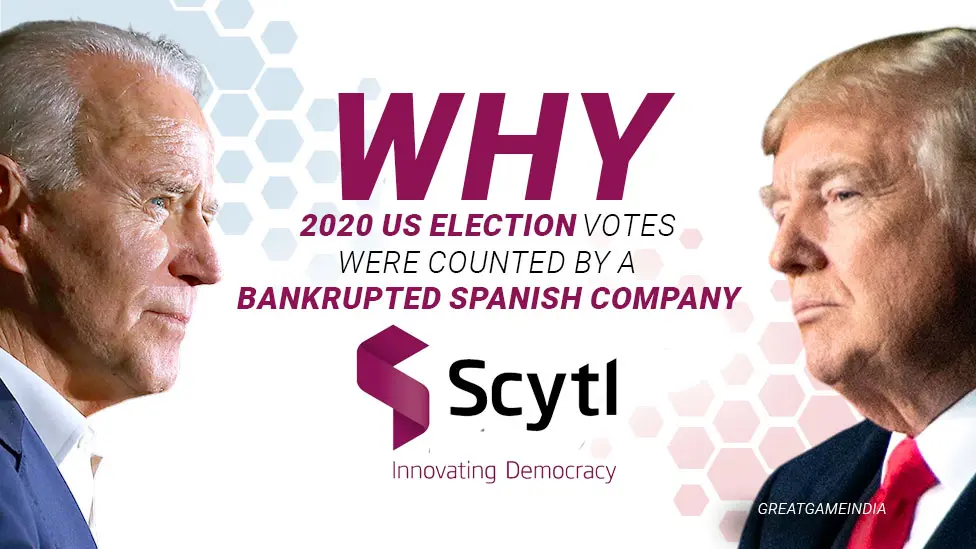

Scytl involvement in 2020 US Election
Many American states commissioned a foreign company based in Spain to provide various election services — including online voting — in the 2020 presidential election. Scytl, a Spanish company headquartered in Barcelona offering a suite of election services, has been used by various states and cities in several ways since 2008.
Forbes reported in 2017:
Founded in 2001 in Spain, Scytl organized 12 state-wide implementations, and its technologies were used in another 980 U.S. jurisdictions in 28 states, during the 2016 General Election. Specializing in online voting and elections solutions, the company’s products include online voter registration services, poll worker management, and electronic ballot delivery.
Its online voting services employ end-to-end encryption, vote return cords, and a bulletin board audit service. Scytl’s customers include France’s Ministry of Foreign Affairs, the European Green Party, the Parliament of the European Union and the Swiss Canton of Fribourg. In January 2012, the company bought SOE Software. Scytl also holds more than 40 patents and patent applications. In 2008, the company became the first online voting company to receive certification from the Florida Department of State.
Scytel’s website shares an overview of election services it provides to governmental clients in U.S.:
Scytl has successfully delivered election modernization projects in the US since 2008, and most recently for the 2018 Midterm Elections, when over 70M voters from more than 900 U.S. counties successfully leveraged Scytl’s technology. Also, during 2016 US Presidential Election Scytl’s technology provided over 53 million registered voters and thousands of election staff across 28 states the benefits of more efficient, scalable and accessible election processes, consolidating Scytl as the leading election modernization provider in the United States.
Scytl was declared Bankrupt in June 2020
What is interesting is that the Spanish firm Scytl was declared bankrupt in June this year. The company filed for bankruptcy as part of a broader analysis of security vulnerabilities associated with digital voting.
On 11 May 2020, facing debts of over 75 million euro, Scytl initiated bankruptcy proceedings with a view to sell its business to the U.S. investment fund Sandton Capital. On 2 June 2020, a Spanish court declared Scytl bankrupt and started the process of auctioning off its assets.
Scytl is funded by Spanish Government
Scytl has been the center of controversy in the past for misuse of European Union funds and mishap with an election. Scytl received large amounts of research funds from the Spanish government which, reporting by Republik shows, was used in ways contrary to what had been stipulated.
Instead of spending it on cooperative work with universities, Scytl used it to stock up its product team and develop new prototypes for its customers. An injection of over 1.5 million euros from Spain’s Ministry for Industry was, according to an internal document seen by Republik, used for, among other things, a «product demo» for Neuchâtel. And 900’000 euros in EU funds were spent on the development of software modules for Ecuadorian election authorities.
Cases of Scytl Voting Fraud
Scytl’s products cover the entire election process, including election planning, online voter registration, poll worker management, electronic ballot delivery, online voting, results consolidation and election night reporting. In 2014, Scytl reported having customers in more than 35 countries. However, Scytl is involved in controversies wherever its products or services were used with allegations as severe as election voting fraud.
Australia
In 2018, the authorities of New South Wales selected Scytl to provide the software for the state’s “iVote” online voting system until 2022 for $1.9 million. The iVote system is an internet and telephone voting solution that allows persons with disabilities and voters with accessibility problems to vote remotely. During the 2015 election, researchers uncovered vulnerabilities in the iVote system which could be used to manipulate votes, violate ballot privacy and subvert the verification mechanism…
